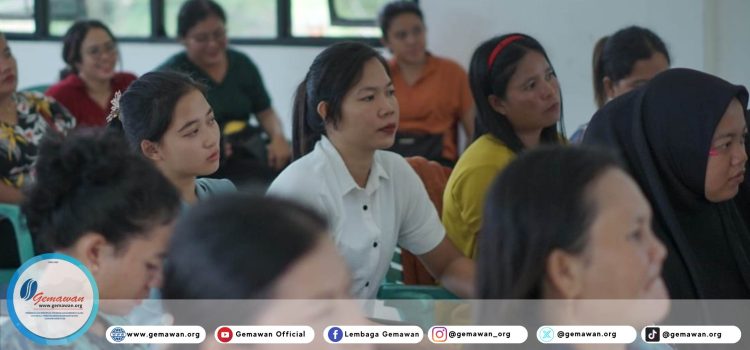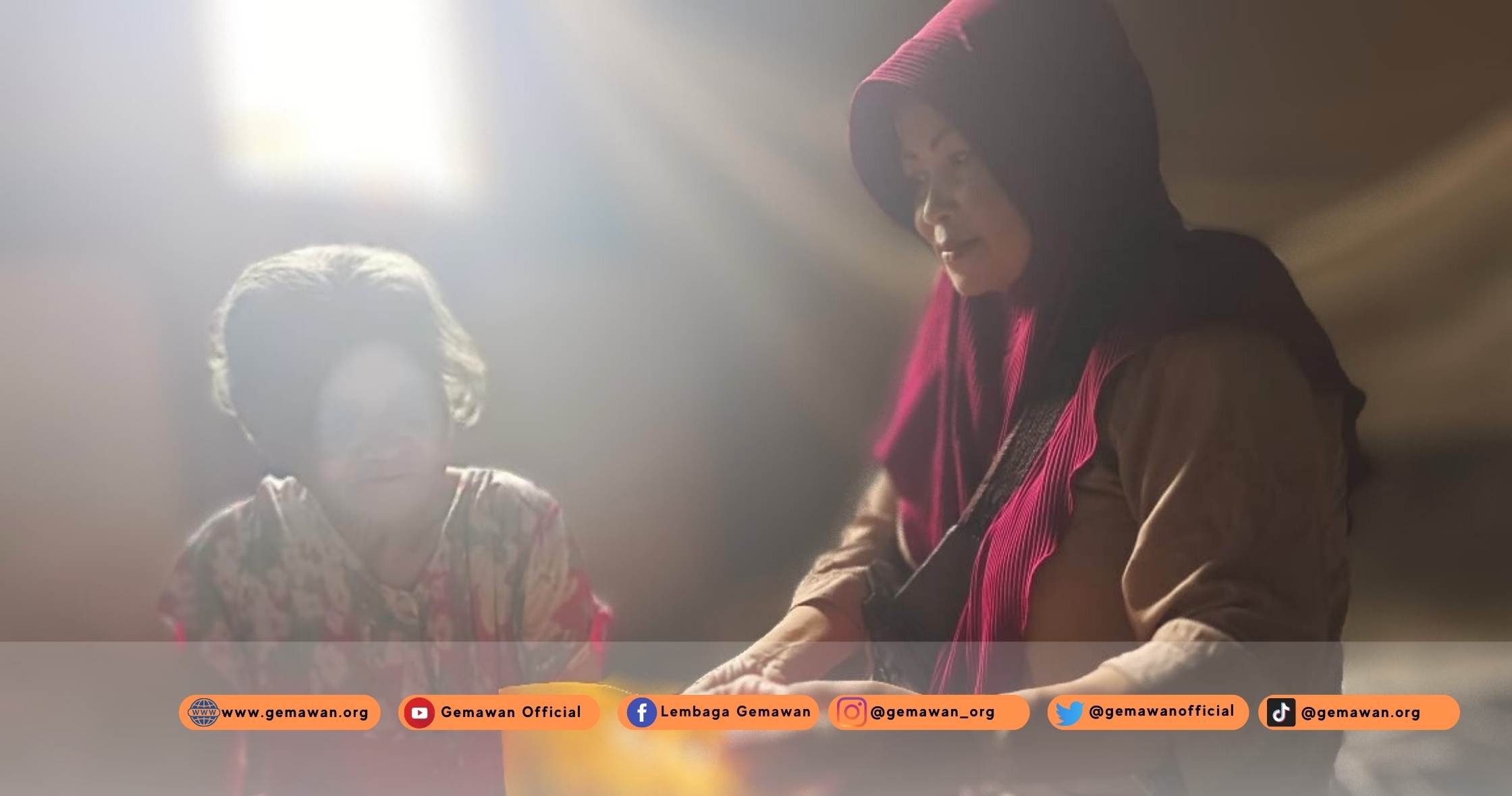
Women’s leadership is rooted not in structures of power and domination, but in a shared awareness that the preservation of nature is the preservation of life itself.
Roots of Change from the Ground Up
Amid growing social uncertainty and ecological crisis, the strength for change often grows quietly from the ground—from women and young people working behind the wooden walls of rural homes, along forest edges, and in small learning spaces.
They build the future in their own way: caring for the earth, strengthening their communities, and planting the seeds of sustainability from an early age.
In West Kalimantan, local initiatives have been cultivating new forms of leadership that stand not only for people, but also for the planet. Women have begun taking strategic roles in managing natural resources, while young people are shaping dreams and preparing themselves as future stewards of life.
Women’s Leadership: Sustaining Life, Cultivating Strength
Across West Kalimantan, women have taken on crucial roles in maintaining social and ecological balance.
In rural communities, they are not only involved in the local economy but also in forest management, sustainable agriculture, and community education.
Their leadership grows from daily experience—from nurturing families and cultivating crops to protecting land from fires and conversion.
Many of them lead women’s groups, cooperatives, and environmental initiatives. They establish community recycling centers, manage no-burn agriculture, and build solidarity-based local economies.
This kind of leadership does not always appear in formal structures but is deeply felt in practice—through collective decisions, mutual aid, and the ways they nurture the resilience of their communities.

In Sadaniang, a subdistrict of Mempawah, young women are showing how leadership can emerge organically.
They discuss the future of their forests and peatlands, plan together, and revive traditional ways of managing their living environment.
From processes like these, women’s leadership takes root—not from authority, but from the collective awareness that protecting nature means sustaining their own lives.
At a broader level, these women are beginning to find a voice in global discussions on climate change and environmental justice.
They bring a new narrative: that sustainability is not merely a technical policy but an act of courage—a commitment to care for the earth in humane and equitable ways.
Economic Transformation Led by Women
Economic independence is an essential part of leadership.
In regions like Kayong Utara and Sambas, women’s groups have built cooperatives and local economic networks grounded in solidarity.
They manage shared resources, record transparent financial systems, and develop community-based products.
For them, legal recognition is not just administrative formality—it symbolizes acknowledgment that women can stand at the forefront as key actors in the earliest stages of local value chains.
A similar spirit thrives in Singkawang, where women have led community waste management movements.
Through simple yet persistent actions—sorting, processing, and selling recycled materials—they nurture new awareness about environmental responsibility beginning from their own households.
These movements demonstrate that leadership does not always arise in political arenas; it grows from daily acts of care and persistence in sustaining life.
Education and Regeneration: Planting the Seeds of Earth’s Guardian
Education plays a vital role in ensuring that change can continue across generations.
In several subdistricts of Mempawah, children of farmers and fishers have received educational support through scholarship programs designed to foster ecological awareness.
These scholarships symbolize hope—that children from modest families can grow into a generation that is knowledgeable, empowered, and environmentally conscious.
From these small learning spaces, a new understanding begins to take root: caring for nature is not only the duty of parents, but a shared intergenerational responsibility.
Young people are increasingly involved in conservation work, sustainable farming, and small-scale research in their villages.
They learn that fertile soil and clean air are legacies to be protected, not resources to be exploited.
Beyond formal education, collaborative spaces have begun to emerge to nurture young leaders. In inter-Kalimantan gatherings, young people, academics, artists, and social practitioners meet to exchange ideas about the future of their island.
They discuss justice, resource governance, and the potential of building a green economy rooted in local communities.
From these exchanges grows a generation that is not only critical but also brave enough to collaborate and innovate. They see change not as an instant outcome but as a long process—one that begins with small acts of trust and cooperation between people.
Leadership that Nurtures Life
Women and young people across West Kalimantan show that great changes often begin with small steps.
From household kitchens to community gardens, from local discussions to global forums, they carry the same spirit—the spirit of nurturing life.
Their leadership is not defined by position, but by values: honesty, empathy, and the courage to stand against injustice.
Education serves as the soil where these values grow, while community solidarity is the water that sustains them.
In their hands, the hope for a greener and more equitable future is no longer just an aspiration—it is a path being built, day by day.
Author: Mohammad R., pegiat Gemawan.

